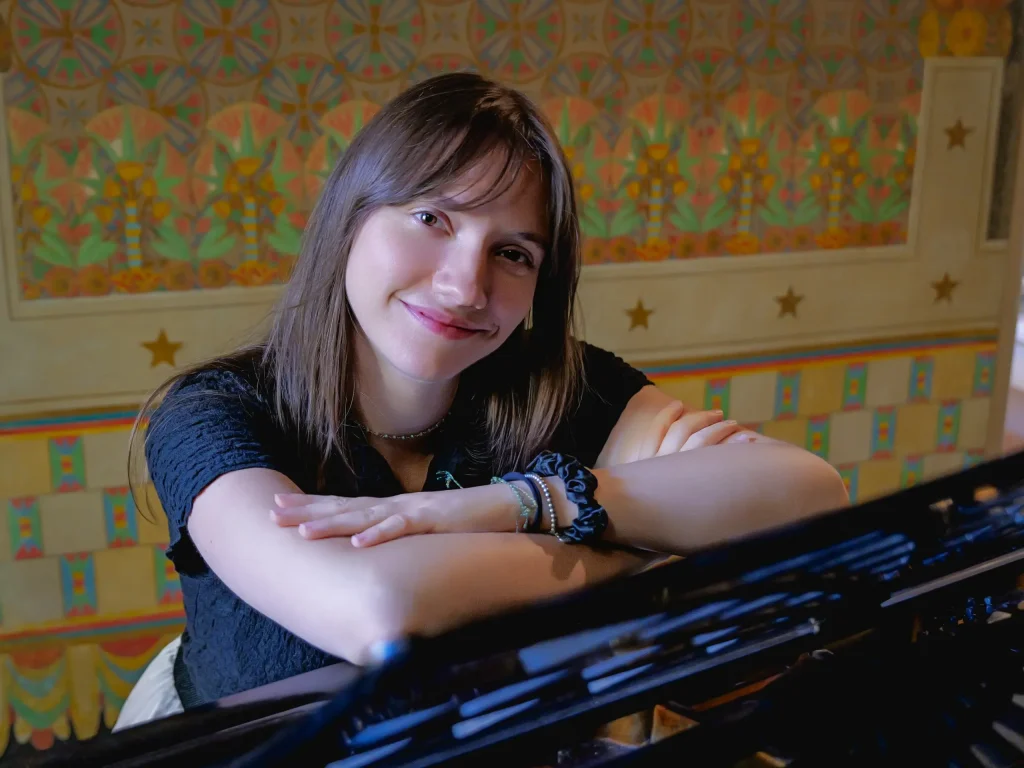The 1950s and her conversion
In 1952, Williams traveled to Europe, where she remained for two years. During this time, she experienced profound mental and physical exhaustion, leading her to take a break from the demanding life of a jazz musician.
Upon returning to the United States two years later, she converted to Catholicism. In addition to spending several hours attending Mass, she dedicated her energy to the Bel Canto Foundation, an initiative she started using her own savings to transform her apartment in Hamilton Heights into a rehabilitation home for the poor and musicians struggling with addiction. Her break from performing may have also been influenced by the death of her friend and protégé, Charlie Parker, in 1955—the saxophone giant who had battled addiction for most of his life.
Father John Crowley and Father Anthony later tried to convince Williams to return to performing; so did Dizzy Gillespie, encouraging her to play with his band at the 1957 Newport Jazz Festival.
The 1960s and her sacred music
In the 1960s, Father Peter O’Brien, a Catholic priest, became her friend and manager. Dizzy Gillespie also introduced her to the Bishop of Pittsburgh, John Wright. O’Brien helped her find new venues for jazz performances at a time when no more than two clubs in Manhattan featured full-time jazz programming. In addition to club work, Williams played at colleges, founded her own record label and publishing house, co-founded the Pittsburgh Jazz Festival (with the bishop’s support), and made television appearances.
Bishop Wright allowed her to teach at Seton High School on the north side of Pittsburgh. There, Mary composed her first Mass, called The Pittsburgh Mass. She thus became the first jazz composer commissioned by the Church to write liturgical music in a jazz style.
Returning to composition
The 1960s marked her official return to composition, with a strong focus on sacred music, hymns, and jazz-based Masses. Notable works include Black Christ of the Andes and Mass for Peace, commissioned by the Vatican and recorded in 1968, later revised and released as Mary Lou’s Mass in 1971.
During the 1970s, her career flourished again, and she recorded numerous albums, including solo piano works. After performing at the Monterey Jazz Festival in 1965, she returned in 1971 and later played at The Cookery, a new club in Greenwich Village. In 1977, she shared the stage with avant-garde pianist Cecil Taylor at Carnegie Hall in a concert later released as the live album Embraced.
From 1977 to 1981, Mary was an artist-in-residence at Duke University, where she taught jazz history alongside Father O’Brien and directed the Duke Jazz Ensemble.
Her final recording, Solo Recital (Montreux Jazz Festival, 1978), was released three years before her passing. The album is a medley featuring spirituals, ragtime, blues, and swing pieces.
Her legacy and final years
In 1980, she founded the Mary Lou Williams Foundation, continuing the charitable work she had started with Bel Canto, promoting jazz culture and supporting musicians in need.
The following year, Mary Lou Williams passed away from bladder cancer in Durham, North Carolina, at the age of 71. Dizzy Gillespie, Benny Goodman, and Andy Kirk attended her funeral at St. Ignatius Loyola Church.
“I’m fighting for the freedom of jazz and for the freedom people hear in it.”
– Mary Lou Williams (Harold V. Cohen, At random, Pittsburgh Post-Gazette, 5 giugno 1964).
Listen to the beautiful version of It Ain’t Necessarily So (George Gershwin, Ira Gershwin) from Black Christ of the Andes:
References and consulted sources
Fabu Phillis Carter, Remember Me, Mary Lou Williams in Poetry, Fabu Phillis Carter, 2019.
Linda Dahl, Morning Glory: A Biography of Mary Lou Williams, University of California Press, 1999.
Tammy L. Kernodle, Soul on Soul: The Life and Music of Mary Lou Williams, University of Illinois Press, 2004.
Deanna Kitkowski, Mary Lou Williams: Music for the Soul, Liturgical Press, Collegeville, Minnesota, 2021.

